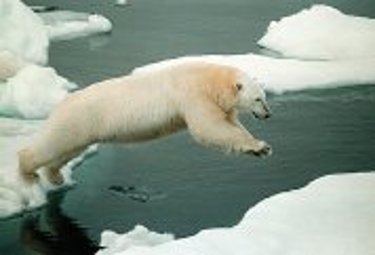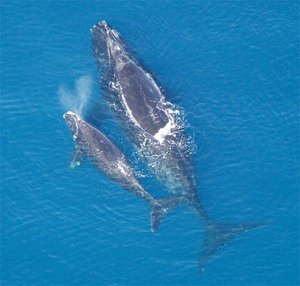Marine Mammal Protection Act, United States
See also: Issues Related to the Marine Mammal Protection Act
Contents
Introduction
The Marine Mammal Protection Act (MMPA), enacted in 1972, was the first legislation that called for an ecosystem approach to natural resource management and conservation. The MMPA prohibits the take (i.e., hunting, killing, capture, and/or harassment) of marine mammals, and enacts a moratorium on the import, export, and sale of marine mammal parts and products. It regulates scientific research in the wild and establishes requirements for the public display of captive marine mammals.
The Act also addresses specific situations such as a tuna fishery in the eastern tropical Pacific Ocean where dolphins associate with tuna and are harassed, injured, and killed by fishing practices. There are exemptions and exceptions to certain prohibitions which the Act defines. For example, Alaska Natives may hunt marine mammals for subsistence purposes, and may possess, transport, and sell marine mammal parts and products. An exception is for entities that apply for and are granted authorization for the incidental take of marine mammals during the course of an otherwise legal activity.
Organization
The primary authority for implementing the act belongs to the U.S. Fish and Wildlife Service (FWS) and the National Marine Fisheries Service (NMFS). The FWS manages walruses; polar bears; sea otters; dugongs; marine otters; and West Indian, Amazonian, and West African manatees. The NMFS manages whales, porpoises, seals, and sea lions. The two agencies may issue permits under MMPA to persons, including federal agencies, that authorize the taking or importing of specific species of marine mammals. The Animal and Plant Health Inspection Service, part of the Department of Agriculture, is responsible for regulations managing marine mammals in captivity.
Marine Mammal Commission
The MMPA established a Marine Mammal Commission whose duties include reviewing laws and international conventions relating to marine mammals, studying the condition of these mammals, and recommending steps to federal officials (e.g., listing a species as endangered) that should be taken to protect marine mammals. Federal agencies are directed by MMPA to cooperate with the Commission by permitting it to use their facilities or services.
The 1988 Exception
Due to a lawsuit which prevented the issuance of permits to the incidental taking of marine mammals in the course of commercial fishing operations, Congress amended the MMPA in 1988 to establish a five-year interim exemption for commercial fishing operations (with the exception of yellowfin tuna fishing). Because of the lack of permits, the National Marine Fisheries Service (NMFS) established a management program to govern the interaction between commercial fishing operations and marine mammals. That exemption expired on October 1, 1993, but has twice been extended by temporary measures.
Amendments of 1994
On April 30, 1994, Congress substantially amended the MMPA, including the improvement of the program to reduce the incidental taking of marine mammals during the course of commercial fishing operations. This replaced the interim exemptions that had been in place since 1988.
Other issues were addressed such as the definition of harassment. These amendments defined two levels of harassment: Level A was any act of pursuit, torment, or annoyance that has the potential to injure a marine mammal, and Level B which was the disruption of behavioral patterns of the mammal. This clarification granted permits allowing for certain scientific research if impacts were limited to Level B harassment of a marine mammal.
Congress also asked for the preparation of stock assessments for all marine mammal stocks in waters under U.S. jurisdiction. Three regional scientific review groups were established to advise and report on the status of marine mammal stocks within Alaskan waters, along the Pacific Coast (including Hawaii), and the Atlantic Coast (including the Gulf of Mexico).
Other amendments included:
- A new category of permits for photography of marine mammals in the wild for educational or commercial purposes.
- The Secretary of Commerce to convene a regional workshop for the Gulf of Maine to assess human-caused factors affecting the health and stability of that marine ecosystem. The goal of the workshop is to identify such factors and to recommend a program of research and management to restore or maintain that marine ecosystem and its key components.
- Encouragement of cooperative agreements with Alaska Native organizations and federal agencies to conserve marine mammals and provide co-management of subsistence use.
Further Reading
- Text of the Marine Mammal Protection Act of 1972, as amended 2001
- US FWS
- NOAA fisheries
- DOE Environmental Policy & Guidance
- Stock Assessment Reports (SARs)
See also environmental laws of United States Fish and Wildlife Service
| Disclaimer: This article is taken wholly from, or contains information that was originally published by, the U.S. Fish and Wildlife Service and NOAA. Topic editors and authors for the Encyclopedia of Earth may have edited its content or added new information. The use of information from the U.S. Fish and Wildlife Service and NOAA should not be construed as support for or endorsement by that organization for any new information added by EoE personnel, or for any editing of the original content. |


